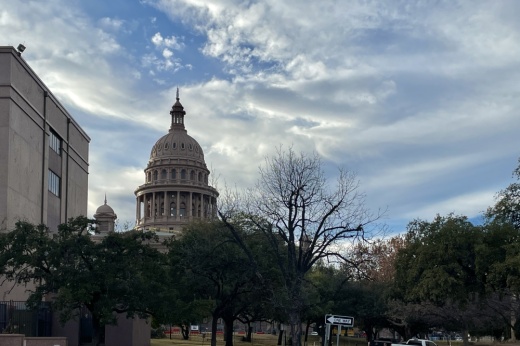“Each community of ours has unique needs,” Nirenberg said. “As mayors with the responsibility of managing services and operations that largely impact the daily lives of our residents, we believe that we are best positioned to determine local policies that improve [the] lives and meet the needs of our respective communities.”
The bipartisan coalition is made up of 18 mayors who represent approximately one-third of Texas’ population. Three of the 10 largest cities in the nation—Houston, San Antonio and Dallas—are in Texas.
“Texas is a large state. ... Our cities have very different needs, and our citizens have very different wants,” Amarillo Mayor Ginger Nelson said. “[We] need the ability to address those things with local control, not having Austin dictate with one solution that meets the needs of every Texan.”
Expanding access to broadband
Fort Worth Mayor Mattie Parker said expanding access to reliable internet is a top priority for her city. Roughly 60,000 of Fort Worth’s over 958,000 residents do not have access to the internet in their homes, she explained.
The need for broadband expansion “was very evident during COVID[-19], especially for our students trying to operate from home in really tough circumstances,” Parker said.
Nelson said access to broadband is “a basic right these days.”
“Whether you are a fifth grader or whether you are a small-business owner, you must have [broadband] access,” Nelson said. “We need the infrastructure in place to provide that access so that everyone in our cities and everyone in our state can have the opportunity to succeed.”
Comptroller Glenn Hegar shared on Jan. 12 Texas’ broadband development map, which breaks the state into served, underserved and unserved areas. The map will help state leaders and lawmakers allocate funding for broadband expansion. According to a news release, an area is eligible for funding if less than 80% of its serviceable locations have access to high-speed internet, or 25/3 megabits per second.
Prioritizing public safety and mental health
Arlington Mayor John Ross said action must be taken to prevent mass shootings in Texas.
“I sit in fear every single day waiting for the next shoe to drop on when we're going to experience a Las Vegas-type of critical incident where there's a mass shooting,” Ross said. “Enough is enough is enough.”
Ross said that increased gun control and funding for mental health services are necessary. He urged lawmakers to take a nonpartisan approach to the topics to “start protecting our citizens.”
Houston Mayor Sylvester Turner said the large amount of money available for Texas’ biennial budget gives lawmakers “an opportunity to be transformative in making investments in mental health.”
Lawmakers will have access to $188.2 billion as they create the state’s budget for fiscal year 2024-25. During a Jan. 9 news conference, Hegar said the “once-in-a-lifetime” balance is largely thanks to high sales tax revenue, spikes in energy prices and recent economic growth.
According to Mental Health America, Texas ranks 51st in access to mental health care, after the other 49 states and the District of Columbia.
Turner said lawmakers must invest in mental health during the current session, “or it is very unlikely to happen anytime soon.”
The coalition also prioritizes property tax relief; economic and workforce development; and increased funding for public schools. Their full legislative agenda can be found here.





